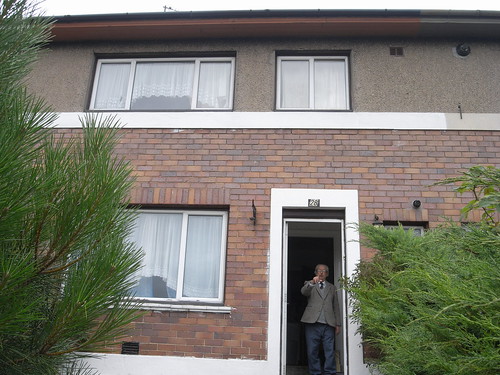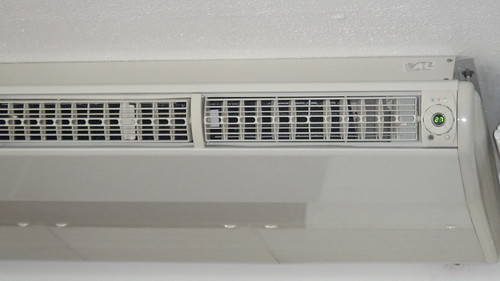Through all of this, it is important to ask the right questions in order to get the best apartment. If you don’t, then you might end up realizing it was a mistake only after you move in. Whether this is your first or one hundredth time doing this, check out this list of some of the most important questions to ask during an apartment showing.
If this is your first time living on your own, please use these tips on renting an apartment. You can never be over-prepared for something like this.
If this is your first time living on your own, please use these tips on renting an apartment. You can never be over-prepared for something like this.
The Important Nitpicky Things
After you have seen the overall layout of the place, it is time to be pernickety about the little things. Sometimes the nitpicky things are of some of the most significant to you, and you might find that addressing the minute details first is better. After all, you can delve into the bigger, boring, big things afterwards.
Some little things to consider include:
- Is there cellphone reception?
- Are there enough outlets in the rooms?
- How old are appliances?
- Which direction do the windows face?
- Are there closets and storage spaces?
Laundry
Inquiring about laundry is essential when choosing an apartment. Although your washing habits are not the most fun topic to think about, your apartment laundry situation will determine your weekly routine.
Find out if there is:
- Laundry in the unit
- Laundry in the building
- A laundromat nearby, if there is no laundry in the building

Do not forget to find out if the machines are coin operated or not. The cost of washing clothes should factor into your monthly budget.
General Utilities
Are utilities included in the monthly rent, or are they separate? You might think you have a great deal when it comes to monthly rent, but after factoring in utilities that are not included in the rent, the extra money you thought you had will fly out the window.
Air Conditioning and Heat
Make sure to ask if the unit has heat or air conditioning at all, as many older buildings do not. Depending on where you live and what your habits are, this may or may not be an important element to your apartment hunt.
Many times air conditioning is not included in the rent, so when considering heat and air conditioning, think about the basic location and dimensions of the apartment. Heat rises and cold falls. This will affect utility
costs; a garden apartment will be much cooler and cost more to heat up, while a penthouse apartment will be much warmer and cost more to cool down. Also, ceiling height plays a factor in how hot and cold air disperses in the space and affects heating and air conditioning.
costs; a garden apartment will be much cooler and cost more to heat up, while a penthouse apartment will be much warmer and cost more to cool down. Also, ceiling height plays a factor in how hot and cold air disperses in the space and affects heating and air conditioning.
Also, ask what type of air conditioning and heat the building uses. Is it central air? Is there a little window air-conditioner? All of these details factor into the monthly cost of living and your overall comfort.
Water
Is water included in the utilities or not? This sounds nitpicky, but it is very important indeed to check the water pressure of the shower at the showing. As a girl with long hair, I know the frustrations of not being able to get the soap out of my tangles with a low-pressured spigot!
Building Owner
 You should also find out who owns the building, who does the maintenance, and how reliable they are about keeping up with basic repairs. Does the unit have it a landlord/landlady? Is it part of a building management company?
You should also find out who owns the building, who does the maintenance, and how reliable they are about keeping up with basic repairs. Does the unit have it a landlord/landlady? Is it part of a building management company?
Sometimes, you can have more leeway with private landlords and landladies renting an apartment as a side
job than you can with a company that owns the whole building. Other times, you may prefer working with a building management company because they have repairmen who fix things quickly and regularly.
job than you can with a company that owns the whole building. Other times, you may prefer working with a building management company because they have repairmen who fix things quickly and regularly.
Lease Agreement
You should also ask about the terms of the lease agreement.
Almost all leases are one-year, but you will find one for two years occasionally. If you plan on staying there for a long time, getting a two-year lease might be helpful because if property value increases in that time, your rent won’t go up until the lease needs to be renewed. However, if you do not know what the future holds, a one-year lease is your best bet. You do not want to be penalized for terminating the lease early if you do not have to.
have no plans now to move out within a year, it is still an important element to consider.
Cost of Moving
- Application Fee: When you apply for an apartment, expect an application fee of somewhere between $20-$50. This covers the cost of doing the credit check.
- First Month’s Rent: Most landlords and management companies require the first month’s rent up front when you apply or sign your lease. Make sure to inquire about their terms when it comes to handing over the first month’s rent with the application. Many application agreements are designed so that if you are accepted, the property owners automatically get the money even if you decide you do not want the apartment after all. Also, many property owners require a cashier’s check rather than a personal check.
- Security Deposit: Many property owners require tenants to turn in a security deposit beforehand to cover any damages that might occur during their stay. If there are no damages incurred, you will get your deposit back at the end of the year. Of course, if there are damages, you will lose your deposit.
- Move-in Fee: Many property owners prefer a “move-in fee” over a security deposit. Like a security deposit, you give some money up front to cover damages and clean up, but unlike a security deposit, you do not get it back. It is not just a way for them to make more money, it also is much easier to manage if the property owner has several other properties.
Credit Score and Rental History
The last things to consider are your credit score and rental history. The property owner is going to want to look into your background to make sure you will be a reliable tenant when it comes to rent and taking care of the property. He or she will factor in your credit history. Some even require a solid rental history as well and might even call your last landlord to ask how reliable you were in the past.
What do you do when this is your first apartment, and you do not have a rental history? Try to find an apartment where the property owner does not factor in rental history as a main factor. There are many options out there!
What do you do when you have a bad credit or rental history? There are a few different ways to get an apartment with bad credit, such as getting a roommate with a good history or having a co-signer. You just need to do a little research first.


No comments:
Post a Comment